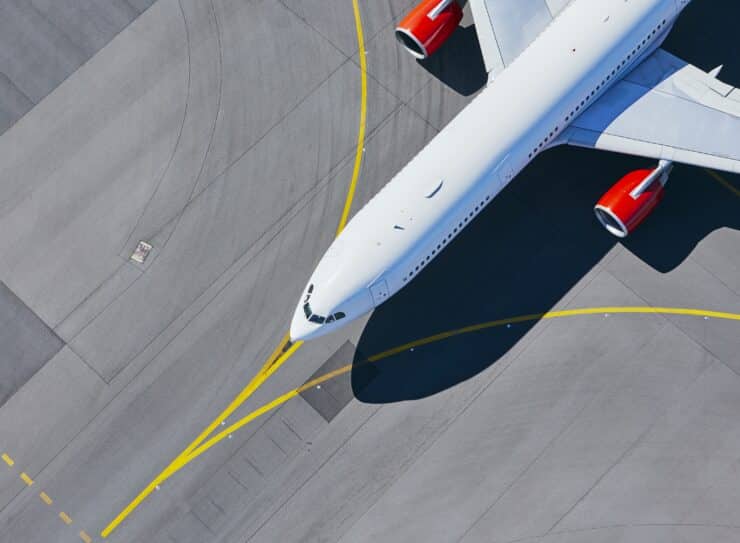30 November 2023
The role of emerging technologies in mitigating the energy crisis
The case of aviation sustainability

The case of aviation sustainability

By Francesco Cappelletti, Senior Policy and Research Officer, European Liberal Forum and Viktorya Muradyan, Communication Officer, European Liberal Forum
In recent years, European citizens have grown more environmentally conscious, opting for sustainable alternatives like trains over air travel to reduce their environmental footprint. However, recognising that rail transport is not necessarily a viable option for long-distance mobility in Europe, EU policymakers are focusing on decarbonisation efforts in the aviation industry.
Exploring how emerging technologies tackle energy challenges, especially in aviation sustainability, is crucial for both the decarbonisation of the sector and the European Commission’s clean transition goals. However, to do so, the European Union faces a series of challenges, from a lack of investment and a unified approach to striking a new balance between public and private sector roles.
The aviation sector is one of the most challenging industries for decarbonisation efforts. The EU aims to make aviation carbon-neutral and reach a point where people can choose any means of transport without significant gaps in their impact on the environment. However, achieving sustainability in aviation requires significant investment and innovation, especially in developing and integrating new technologies. On one hand, sustainable aviation fuels are crucial for decarbonising the aviation sector. However, these fuels are costly, and the aviation industry needs to adapt its business model to integrate these prices. The role of biofuels and synthetic fuels remains central, emphasising the potential for partial self-sufficiency in biofuel production while recognising the economic benefits of producing synthetic fuels outside the EU.
On the other hand, there are concerns about the fragmented approach within Europe, where member states often prioritise national interests over collective European goals. This fragmentation affects the efficient use of funds and hinders the development of a cohesive industrial strategy. We need to think about industrial strategy from the perspective of the continent. Therefore, there is a need for policy consistency and alignment across different legislative areas. The EU can create demand for renewable fuels through legislation, but this needs to be supported by more coherent policies on funding and strategies.
Energy autonomy – a real possibility or a myth?
There is a clear understanding that Europe will always rely on trade for its energy needs. This dependence underscores the complex interplay between securing reliable energy sources and maintaining geopolitical and economic stability on the European continent. There’s a call for diversifying energy partners globally, mainly with democratic countries, to avoid over-dependence on specific regions. Nevertheless, we shouldn’t close the door on domestic energy production in Europe. There’s potential for Europe to be partially self-sufficient in biofuel production, while synthetic fuels may be more economically viable to produce outside the EU.
The road ahead
Policymakers and MEPs are presented with a compelling challenge: to be the architects of Europe’s sustainable aviation.
Firstly, to achieve this, a strategic use of Sustainable Aviation Fuels (SAFs) is needed. The necessity for the aviation industry to evolve its economic models in response to SAFs is not just a challenge but an opportunity for innovation. MEPs should advocate for a unified EU strategy focusing on investment, innovation, and diversification of energy supplies. MEPs must also advocate for the simultaneous flow of both public and private investment, which works well in the US and can be a good opportunity to reinforce public-private partnerships.
Another important component of the EU’s preparedness for aviation decarbonisation is diversifying energy partners globally, with a preference for democratic allies. The required diversification is more than a policy; it’s a strategic imperative for Europe’s energy autonomy.
Thirdly, the role of digitalisation in clean transition should be amplified. Digitalisation means efficiency improvement, and when it comes to energy, efficiency can help us achieve resource optimisation.
While we shouldn’t wait until the elections to take action, meeting our decarbonisation targets through well-thought-out investment and innovation should be one of the top priorities of the new European mandate post-2024 elections. Transitioning to sustainable aviation remains a complex challenge, and there is a need for collaborative efforts between policymakers, industry, and international partners. The focus should be on innovation, investment, and strategic partnerships to navigate the challenges of decarbonisation and energy sustainability in aviation.